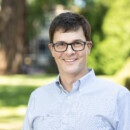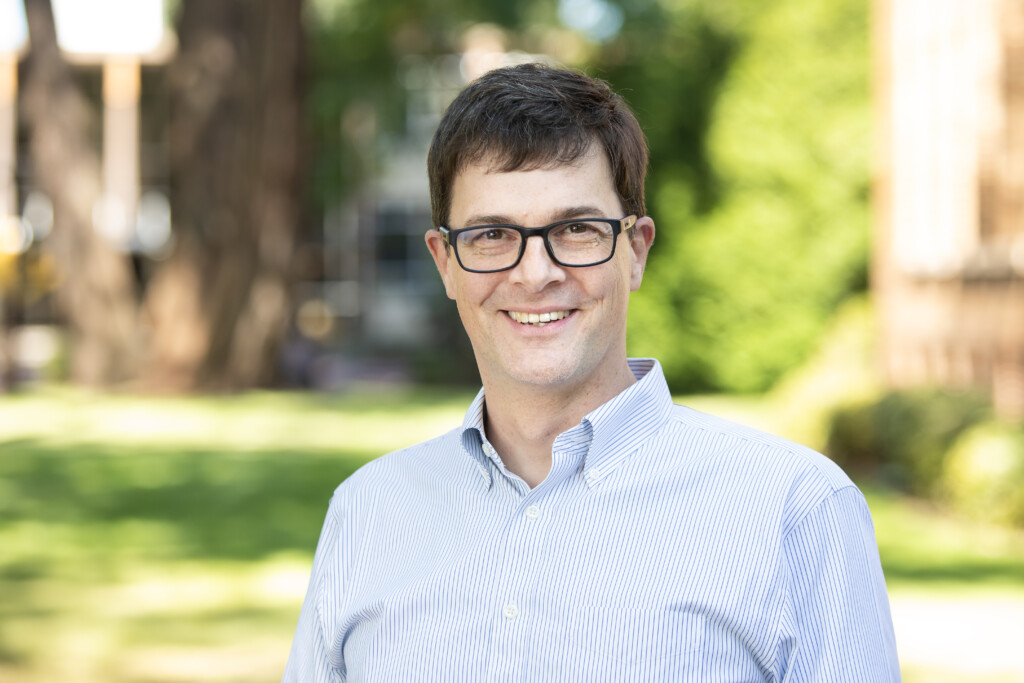Page 15 • (1,880 results in 0.019 seconds)
-
The Great American Songbook, Native Gardens, The Prom, and DANCE 2024 $16 General admission $12 Seniors (60+), military, alumni, and PLU community (faculty & staff) $8 Immediate family of
2024-25 Season The Great American Songbook: a musical revue Performances: October 4 @ 7:30pm and October 5 @ 5:30pm; Eastvold Auditorium Director: Tom Smith and Parker Brown (’25) Music Director: Amy Boers Choreographer: Taya Lovejoy (’25) An evening of American popular songs and jazz standards from the 1920s to the 1960s that were created for Broadway and Hollywood, performed by PLU’s brightest talents! Native Gardens by Karen Zacarías Performances: November 7-9 @ 7:30pm, and November 10 @ 2pm
-

Professor of Christian and Environmental Ethics | Environmental Studies | obrien@plu.edu | 253-535-7239 | Kevin J.
Publications 2011) : View Book An Ethics of Biodiversity: Christianity, Ecology, and the Variety of Life (Georgetown University Press 2010) : View Book Grounding Religion: A Field Guide to the Study of Religion and Ecology co-edited with Dr. Whitney A. Bauman and Dr. Richard R. Bohannon (Routledge 2010) : View Book Selected Articles "Balancing Critique and Commitment: A Synthetic Approach to Teaching Religion and the Environment." Teaching Theology and Religion Vol. 17.3, 2014: "Prophets Meet Profits: The
-

Professor of Christian and Environmental Ethics | International Honors | obrien@plu.edu | 253-535-7239 | Kevin J.
Publications 2011) : View Book An Ethics of Biodiversity: Christianity, Ecology, and the Variety of Life (Georgetown University Press 2010) : View Book Grounding Religion: A Field Guide to the Study of Religion and Ecology co-edited with Dr. Whitney A. Bauman and Dr. Richard R. Bohannon (Routledge 2010) : View Book Selected Articles "Balancing Critique and Commitment: A Synthetic Approach to Teaching Religion and the Environment." Teaching Theology and Religion Vol. 17.3, 2014: "Prophets Meet Profits: The
-

Professor of Christian and Environmental Ethics | Religion | obrien@plu.edu | 253-535-7239 | Kevin J.
Publications 2011) : View Book An Ethics of Biodiversity: Christianity, Ecology, and the Variety of Life (Georgetown University Press 2010) : View Book Grounding Religion: A Field Guide to the Study of Religion and Ecology co-edited with Dr. Whitney A. Bauman and Dr. Richard R. Bohannon (Routledge 2010) : View Book Selected Articles "Balancing Critique and Commitment: A Synthetic Approach to Teaching Religion and the Environment." Teaching Theology and Religion Vol. 17.3, 2014: "Prophets Meet Profits: The
-
American Dental Association (ADA) The ADA provides the latest information about education and careers, science and research, advocacy and publications related to the dental field as well as much
Useful Pre-Dental ResourcesAmerican Dental Association (ADA) The ADA provides the latest information about education and careers, science and research, advocacy and publications related to the dental field as well as much more. ADA Foundation Grants and Awards The ADA Foundation provides grants, awards, and scholarships through its various programs to benefit organizations and students that strive to improve oral health. American Dental Education Association (ADEA) The ADEA has excellent
-
American Dental Association (ADA) The ADA provides the latest information about education and careers, science and research, advocacy and publications related to the dental field as well as much
Useful Pre-Dental ResourcesAmerican Dental Association (ADA) The ADA provides the latest information about education and careers, science and research, advocacy and publications related to the dental field as well as much more. ADA Foundation Grants and Awards The ADA Foundation provides grants, awards, and scholarships through its various programs to benefit organizations and students that strive to improve oral health. American Dental Education Association (ADEA) The ADEA has excellent
-
The mission of the Scandinavian Cultural Center at Pacific Lutheran University is to enrich understanding of Nordic and Nordic-American cultures in support of PLU’s educational mission and in
Welcome to the Scandinavian Cultural Center at PLU!The mission of the Scandinavian Cultural Center at Pacific Lutheran University is to enrich understanding of Nordic and Nordic-American cultures in support of PLU’s educational mission and in recognition of PLU’s Nordic heritage. The Center is located in the Anderson University Center at Pacific Lutheran University, in Tacoma Washington. We are open Tuesdays and Wednesdays 12 p.m. to 3 p.m. and Sundays 1 p.m. to 4 p.m. during the academic year
Center Open HoursMonday: ClosedTuesday: 12:00 PM - 3:00 PMWednesday: 12:00 PM - 3:00 PMThursday: ClosedFriday: ClosedSaturday: ClosedSunday: 1:00 PM - 4:00 PMOffice HoursMonday: By appointmentTuesday: By appointmentWednesday: By appointmentThursday: By appointmentFriday: By appointmentSaturday: N/ASunday: N/AScandinavian Cultural CenterAnderson University Center, Room #100 Tacoma, WA 98447 -
The mission of the Scandinavian Cultural Center is to enrich understanding of Nordic and Nordic-American cultures in support of PLU’s educational mission and in recognition of PLU’s Nordic
Photo compliments of Hallie PetersonStudy Away in Scandinavia and Beyond! The mission of the Scandinavian Cultural Center is to enrich understanding of Nordic and Nordic-American cultures in support of PLU’s educational mission and in recognition of PLU’s Nordic heritage. We also recognize the importance of global education, the growing interconnectedness of our world and the transformational experience of learning from, about and within other cultures and communities outside our own. The SCC
-
Helpful Links: APA: the style and citation system created by the American Psychological Association. General Formatting Guide Rules for In-text Citations Reference List Guidelines ASA: the style and
most common citation style guide that include how to create reference lists, in-text citations (or footnotes), and the basics of formatting within each style.Helpful Links: APA: the style and citation system created by the American Psychological Association. General Formatting Guide Rules for In-text Citations Reference List Guidelines ASA: the style and citation system created by the American Sociological Association. Basic Citation Guide Further In-text Citation Guidelines (ASA Net) Chicago: a
-
Monday May 20, 2024 2:00-6:00pm in Rieke 103B
base this argument and point of advocacy on an examination of the relationship between Christianity and the environment, an overview of experiential outdoor education, and my own experience incorporating environmental education into ELCA camp programming.I’d like to thank Dr. Rose McKenney, Dr. Michael Behrens, and Dr. Kevin O’Brien for their support throughout this process. Additionally, I’d like to thank my friends and family for their constant presence in my life, as well as my fellow staff
Do you have any feedback for us? If so, feel free to use our Feedback Form.


